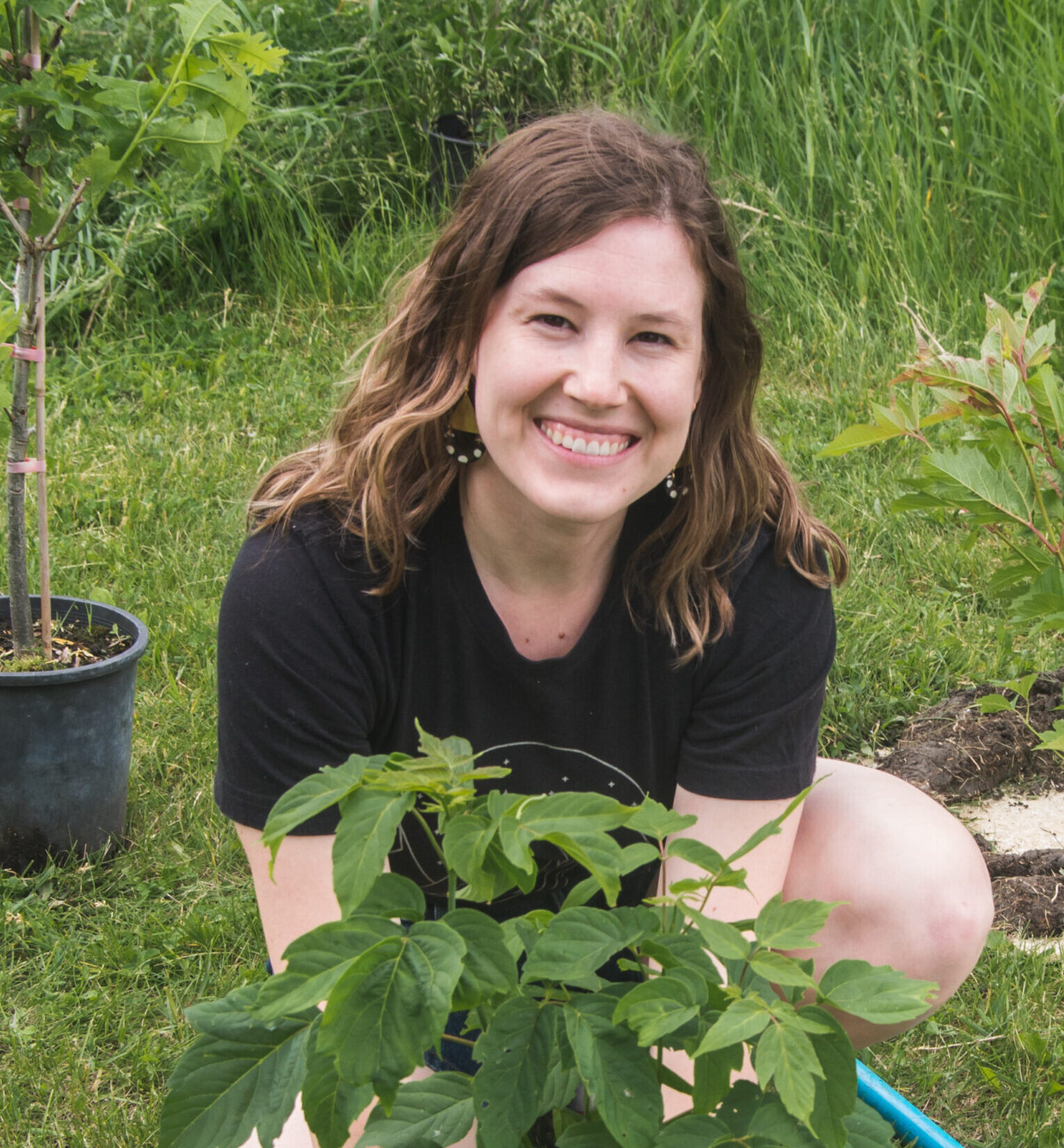An hour and a half east of Winnipeg, where the prairie grasses meet the rocky outcroppings of the Canadian Shield, there is a lodge surrounded by forest. A small river, aptly named the Boggy River, meanders along the edge of this land. I walk into the forest beside the river, pausing to admire the soft needles of the tamarack trees and the peaty scent of moss-covered earth. While I have walked this trail many times before, I find there is always something new to discover.

one of A Rocha’s environmental
education day camps.
The Boreal Ecology Centre in East Braintree, Manitoba is a place I have come to love in my time working as the Manitoba Program Manager for A Rocha Canada, a Christian nature conservation organization. It is a living lab composed of 220 acres of forests, meadow, and river where A Rocha undertakes conservation science research and environmental education. A Rocha’s mission is to transform people and places by showing God’s love for all creation.
Over the past four years of engaging people in the care of creation, I have been asking the question of what motivates people to act on behalf of creation? If it were facts and figures about the dire state of our planet, then we’d be well on our way to stopping the mass extinctions and climate catastrophes happening around the world. We are constantly inundated with information, but it seems as though facts and figures aren’t enough.
More than 50 years ago, Senegalese environmentalist Baba Dioum suggested that a crisis of affection is one of the roots of the environmental problems we face today. To paraphrase him: “We won’t save places we don’t love, we can’t love places we don’t know, and we don’t know places we haven’t learned.” Dioum recognized that we are becoming increasingly distanced and disconnected from the natural world. As supply chains lengthen, we are no longer faced with our deep dependence on the earth each day. We no longer live in direct relationship with the land and the places that sustain us.
Research on adults who care about the environment shows that the single most important factor behind someone

who takes action is an emotionally powerful encounter with nature as a child. At A Rocha, an important part of what we do is provide opportunities for kids to be outside and get to know the nature in their own backyards. For the past four years, A Rocha has delivered children’s environmental education day camps in partnership with churches in Winnipeg, including St. Margaret’s Anglican and Many Rooms Church Community.
A Rocha day camp starts with an experience of wonder and ends with gratitude. Children are encouraged to build a fort in the forest, taste a carrot straight from the garden, or interact with a special animal visitor. We conduct science experiments, learn about native plants, and cook food together. At the end of the day, the children are invited to reflect on something they discovered or enjoyed. I am always amazed at the children’s natural capacity for wonder and awe.
One day, while exploring an urban farm with the kids, a young boy was so excited after tasting a carrot from the garden he exclaimed that he wanted to eat carrots for dessert. Another girl, after spending some time dissecting tiger lilies, became curious about how the pollen stuck to her fingers and nose. She was thrilled by this, and yelled to the group that she had discovered natural face paint. Suddenly all of the children were smearing pollen on their faces!

Sometimes, my first instinct in similar situations is to stop the child, and be frustrated by the mess, but then I am reminded that Jesus calls us to be like the little children (Matt 18:3). Children naturally see the wonder in God’s world and love it. As adults, we often overlook or ignore our capacity for wonder, but it is critical to the healing of the earth that we reawaken this sense.
I love bringing first-time visitors to the Boreal Ecology Centre on walks through the forest. I have seen many adults reawaken their sense of wonder as we experience the beauty of lady slippers and the mystery of fungi together. Of course, you don’t have to leave the city to have these experiences. As the children at camp show me, wonder can come through everyday experiences of the creation that is around us all the time. Are we prepared to listen to, and learn from the delight and love of children and youth for creation? Are we willing to open ourselves up to that love? If we are, then we can begin to build a world where all of creation can flourish.
Download this story as a PDF.






